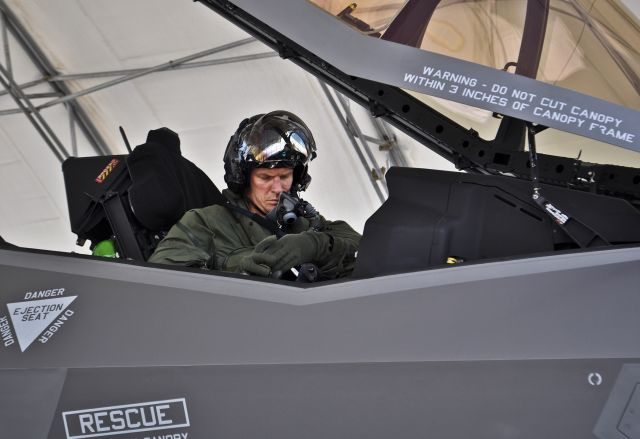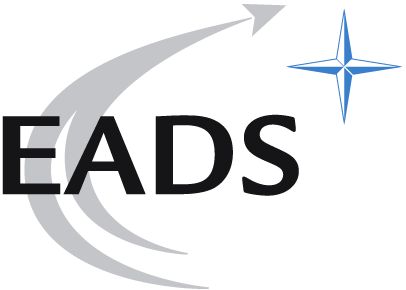Five months of flying the Air Force’s newest fighter jet has left one Airman convinced of the aircraft’s substantial combat capability.
Lt. Col. Lee Kloos is the commander of the 58th Fighter Squadron, the Defense Department’s first F-35 Lightning II training squadron, located at Eglin Air Force Base, Fla.
Kloos, who spent more than 2,100 hours flying F-16 Fighting Falcons, said many of America’s fighter jets are aging and the costs associated with maintaining and upgrading them increases with each passing year.
The F-35 is the world’s first multi-role stealth fighter that is designed to replace aging stalwarts such as the Air Force’s F-16 Fighting Falcon, the Navy’s F/A-18 Hornet and the Marine Corps’ AV-8B Harrier II.
As an aircraft that meets the mission needs of multiple services in addition to those of international partner nations, the F-35 provides a support network that enables many opportunities for cost sharing and savings, Kloos said.
But long-term savings are just one of the benefits to training with pilots from other services and other countries.
Kloos said fighter pilots from different services use different terms even for things as basic as flying in formation.
[ppgallery id=”19″]
When he participates in large training exercises that involve a variety of aircraft from multiple services and countries, a lot of time is spent discussing one another’s capabilities and how to best work together.
Future large-scale exercises may still see many participant nations, but the variety of aircraft will decrease as F-35s cover the flight line, though many will not have an American Flag painted on the fuselage.
Kloos said the common frame of reference within the F-35 flying community will have a real impact on air combat.
“We’ll speak the same language when it comes to executing tactics,” he said.
He also said the impact extends all the way to the top Airman in the fight, the combined forces air component commander.
Much like in large-scale exercises, the extensive variety of aircraft under the air commander’s purview requires an encyclopedia’s worth of knowledge in order to assign the aircraft to the various day-to-day combat taskings in the most efficient manner.
As more and more of the multi-role F-35s are added to the inventories of the U.S. and its allies, a commander will be able to shift his focus to other warfighting priorities.
While Kloos said the F-35 provides substantial value, it also a joy to fly.
“It’s really an easy airplane to fly,” said Kloos. “It’s very stable and well balanced and it feels very light on its feet compared to how it appears.”
Kloos said the aircraft was designed for the new generation of cadets who grew up playing video games.
Compared to the fighters it will replace, the F-35 has a very clean cockpit. The walls of switches common to many aircraft have been moved to two touch screens, which have interfaces that operate like many smart phones.
And its combination of superior range, cutting-edge avionics and next-generation sensor package gives the F-35 much more combat effectiveness than its predecessors. He said the technology allows pilots to be more survivable and more lethal than they were in previous aircraft while performing the same missions.
“The F-35 is here, it’s real and for the Air Force, this jet is our future,” said Kloos. “It will continue to provide air dominance for America and our allies, and most importantly, over our troops no matter where they are in the world.”
(Tech. Sgt. Shawn J. Jones contributed to this article)











